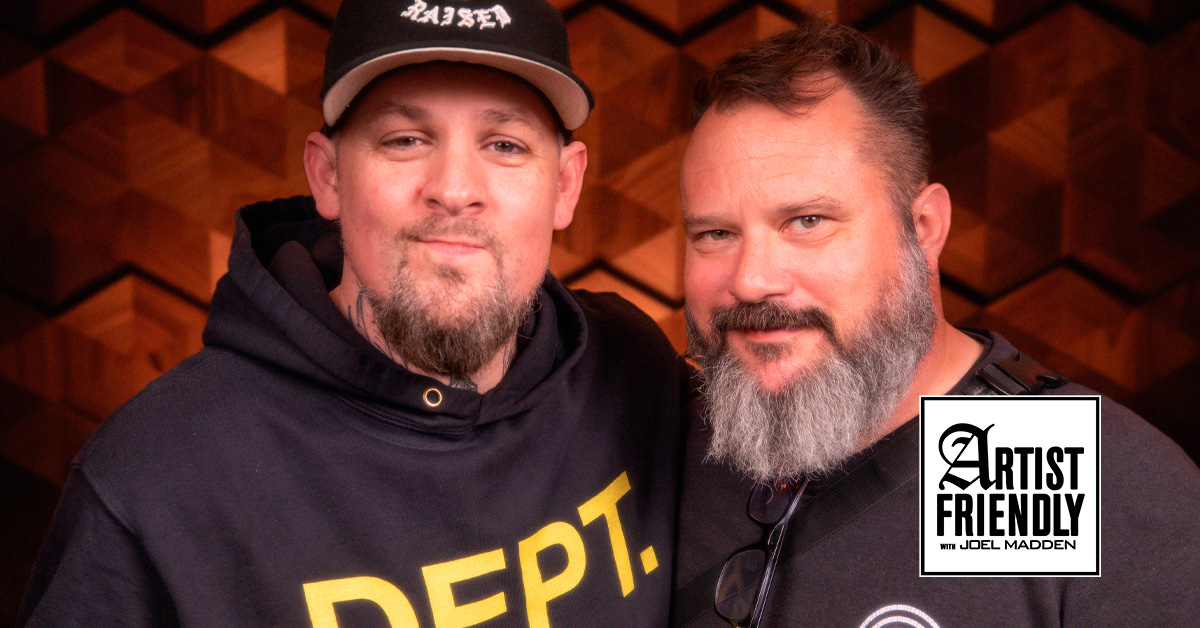
Don't Turn These Up To 11, Part 3: Classic, Power & Recent Metal Mistakes
. . .
In the third part of this series, we’ll cover a classic metal gem, wonder what would happen if a symphonic power metal classic put itself on a diet, and revisit recent history.
1. Judas Priest – Stained Class
Numerous modern bands suffer from sterile and synthetic production. I believe it’s due to an inability to experiment with tone in the studio because shrinking budgets push bands to record and mix as quickly as possible. Stained Class was an all-analog recording done for Columbia Records, and yet somehow it’s just as synthetic and sterile as any modern record. It also lacks any oompfh. There isn’t enough bass presence, and the guitars are wimpy. They’re shiny, synthetic, thin, and far too bright. The bass drums sound ok, but the rest of the kit sounds pathetic. There’s a street-performer who routinely sets up camp in Baltimore’s Inner Harbor. He spends his days and nights whacking a set of plastic tar barrels for pocket change. His improvised kit has better tone than the drums on Stained Class.
Here’s the studio version of Exciter, and the live version from Unleashed in the East for comparison. Even if you think Unleashed was mostly recorded in a studio, it still sounds better.
http://www.youtube.com/watch?v=02V2XWbpf1s
Exciter (Stained Class)
VS.
http://www.youtube.com/watch?v=-7wQLogDm3o
Exciter (Unleashed in the East)v
. . .
2. Blind Guardian – Night at the Opera
I don’t like Night at the Opera, but the question is why. Is it the mix, is it the songs, or is it both? Take a look at metal-archives, because power metal fans love this album. To some extent, my criticism of this album’s production might be a criticism of artistic choice rather than technical issues. Frankly, there are too many times when the rhythm guitars are pushed so far back in the mix that they might as well have been cut out entirely. During these times, the keyboards, vocals, and choirs overwhelm everything else. Heavy metal isn’t heavy metal without the guitars! This album leans on the all icing and no cake side of things.
If Blind Guardian intended the album to have such an emphasis on choirs and keyboards, then I think this intention damaged the album by bloating it. If they didn’t, the album is still bloated by the production, but it’s a technical issue, not an artistic choice.
Either way, Night‘s defining characteristic is the extravagance of a thousand Casios and a thousand choirs dueling for supremacy. Supremacy of what is anybody’s guess. If I wanted nothing but keyboards and choirs, I’d be a fucking Baptist. When the guitars are loud enough, I start to like the album, but for me, it’s all ruined by the emphasis on everything that’s not an electric guitar.
Battlefield
. . .
3. Nevermore – Enemies of Reality
This one seems to have faded from popular memory despite being a recent screw-up, but back in the day, it was infamous. Upon its release, Enemies was lauded for the excellent songwriting, killer riffs, and Warrel Dane’s impassioned performance. Upon its release, Enemies was also criticized for the sloppy production. The mix was muddy, with too much bass and not nearly enough treble to retain clarity. Cranking the album just emphasized how tubby it sounded. The guitar tone was flat and dominated the mix. The drums had so much bass that they sounded like Tupperware but had no impact because they were buried under the guitars. Warrel Dane’s vocals were well recorded and mixed, so there’s that. Then again, has any album ever had poorly recorded vocals?
The root cause of this problem may have been the band’s choice of producers, Kelly Gray. The heaviest band Gray had worked with previously was Queensryche, and despite Nevermore giving him metal CDs as reference points, he probably wasn’t sure what to do with Nevermore. A secondary issue may have been the band’s budget. Enemies was Nevermore’s last album on their original contract with Century Media. Century Media wanted Nevermore to resign, and when Nevermore refused to do that until after Enemies was released, Century Media cut the recording budget drastically. A comment on Amazon’s product page for Enemies claims that Nevermore received $20,000 for the job. I haven’t been able to substantiate that claim, nor do I know if that’s a lot of money for a label like Century Media to dole out.
Two years after its initial release, Century had the album remixed by Andy Sneap and then re-released. I recall that the remix was offered for $5 in a paper slipcase by mail order . . . that’s how bad the original was. The remix helped a lot- it cut a lot of the flab and mud out of the sound and made the drums sound more powerful, but I think it’s too trebley and dry. Nevermore promptly leapt back into Andy Sneap’s arms for another safe and cookie-cutter recording with their follow-up effort.
I prefer the original version because I find it heavier, but I still wish Nevermore had worked with another producer. Enemies is unique sounding, but unique doesn’t have to mean bad. The Sneap remaster sounds like every album Sneap’s ever recorded: clear, but boring.
. . .












